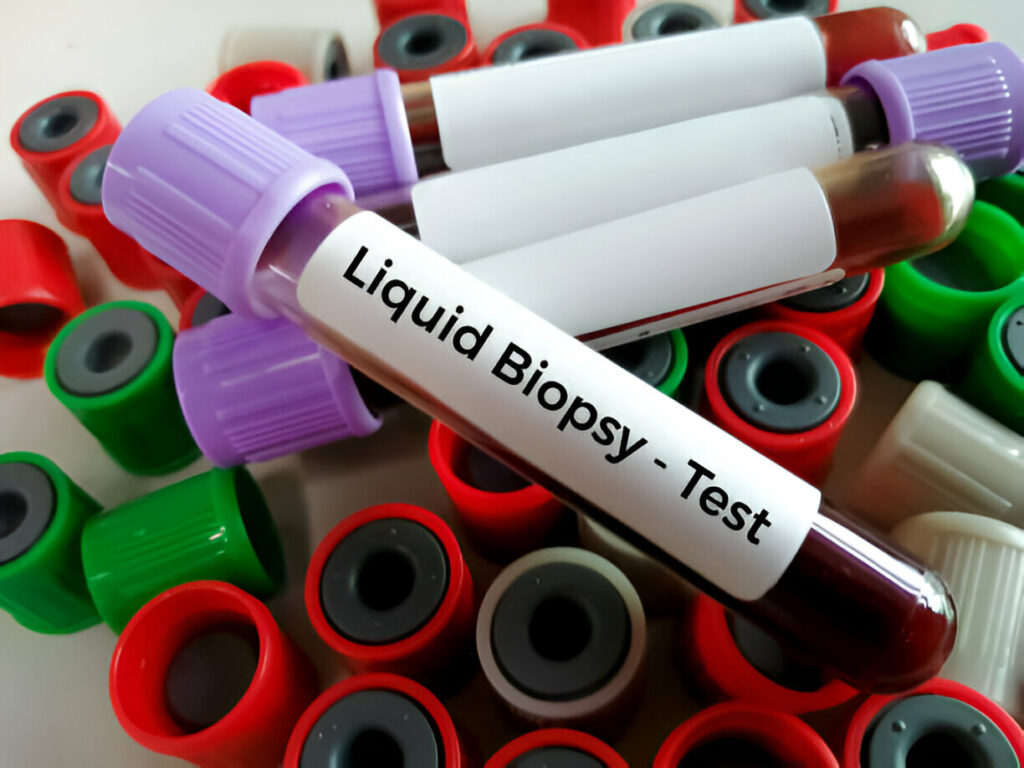In recent years, liquid biopsies have emerged as a groundbreaking innovation in cancer diagnostics. Unlike traditional tissue biopsies, which often involve invasive surgery and prolonged recovery time, liquid biopsies require only a simple blood draw. This non-invasive method enables healthcare professionals to detect and monitor cancer with ease and precision.
At Pathlabs, our commitment to advanced diagnostics ensures we stay at the forefront of such innovations. By adopting liquid biopsy technology, we aim to improve early detection rates and enhance patient outcomes.
What Are Liquid Biopsies?
A liquid biopsy is a type of test that detects cancer-related components like circulating tumor DNA (ctDNA), exosomes, and tumor cells in bodily fluids—mostly blood. This technique allows for a real-time, comprehensive look at how a cancer is progressing without the need for surgery.
According to the National Cancer Institute, liquid biopsies offer a non-invasive way to gain genetic insights into tumors, especially for patients who are not fit for invasive procedures.
How Liquid Biopsies Work
The procedure is simple and patient-friendly:
- Blood Sample: A small blood sample is collected.
- Biomarker Detection: Advanced tools analyze the sample for specific cancer-related genetic markers.
- Data Interpretation: Oncologists use this data to confirm diagnosis, monitor treatment progress, or detect recurrence.
Learn more about our comprehensive diagnostic testing services to see how liquid biopsies are integrated into modern pathology.
Benefits of Liquid Biopsies
- ✅ Minimally Invasive: No need for surgical procedures or anesthesia.
- ✅ Early Cancer Detection: Captures tumor activity even before symptoms appear.
- ✅ Treatment Monitoring: Tracks changes in tumor DNA during and after treatment.
- ✅ Multicancer Use: Effective in detecting various cancers including lung, breast, and colorectal.
- ✅ Rapid Results: Faster turnaround compared to conventional biopsies.
With innovations like Genetic Testing, liquid biopsies help create a roadmap for personalized treatment plans, giving patients a stronger chance at recovery.
Limitations to Consider
While promising, liquid biopsies are still evolving. They may not detect very small or early-stage tumors effectively in every case. The availability of this test may also vary across healthcare facilities, and costs can be higher in some regions. However, ongoing research is rapidly addressing these issues.
For instance, companies like Guardant Health are leading the way in developing more accurate and accessible liquid biopsy solutions worldwide.
Future Outlook
The future of liquid biopsies looks incredibly bright. As more clinical trials validate their accuracy and cost-effectiveness, it’s likely they will become a standard part of cancer screenings—especially for high-risk patients. With continued support from diagnostic labs and research institutions, this technology could one day replace or significantly reduce the need for tissue biopsies.
You can also read our article on The Role of Pathology in Early Disease Detection to understand how technologies like these contribute to timely and accurate diagnoses.
Final Thoughts
Liquid biopsies are revolutionizing the way we detect and manage cancer. Their non-invasive nature, combined with high diagnostic value, makes them a vital part of the future of healthcare. As they become more refined and widespread, patients can look forward to faster diagnoses, personalized treatments, and improved survival rates.




